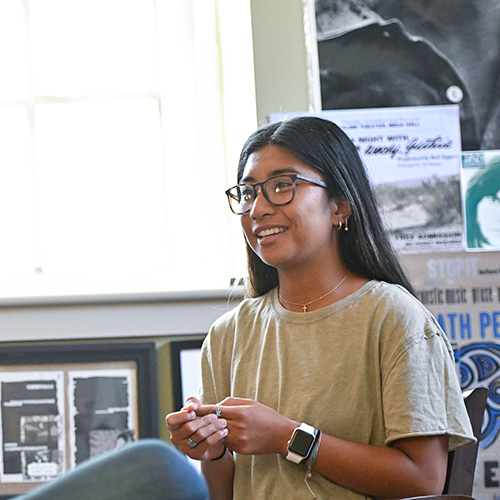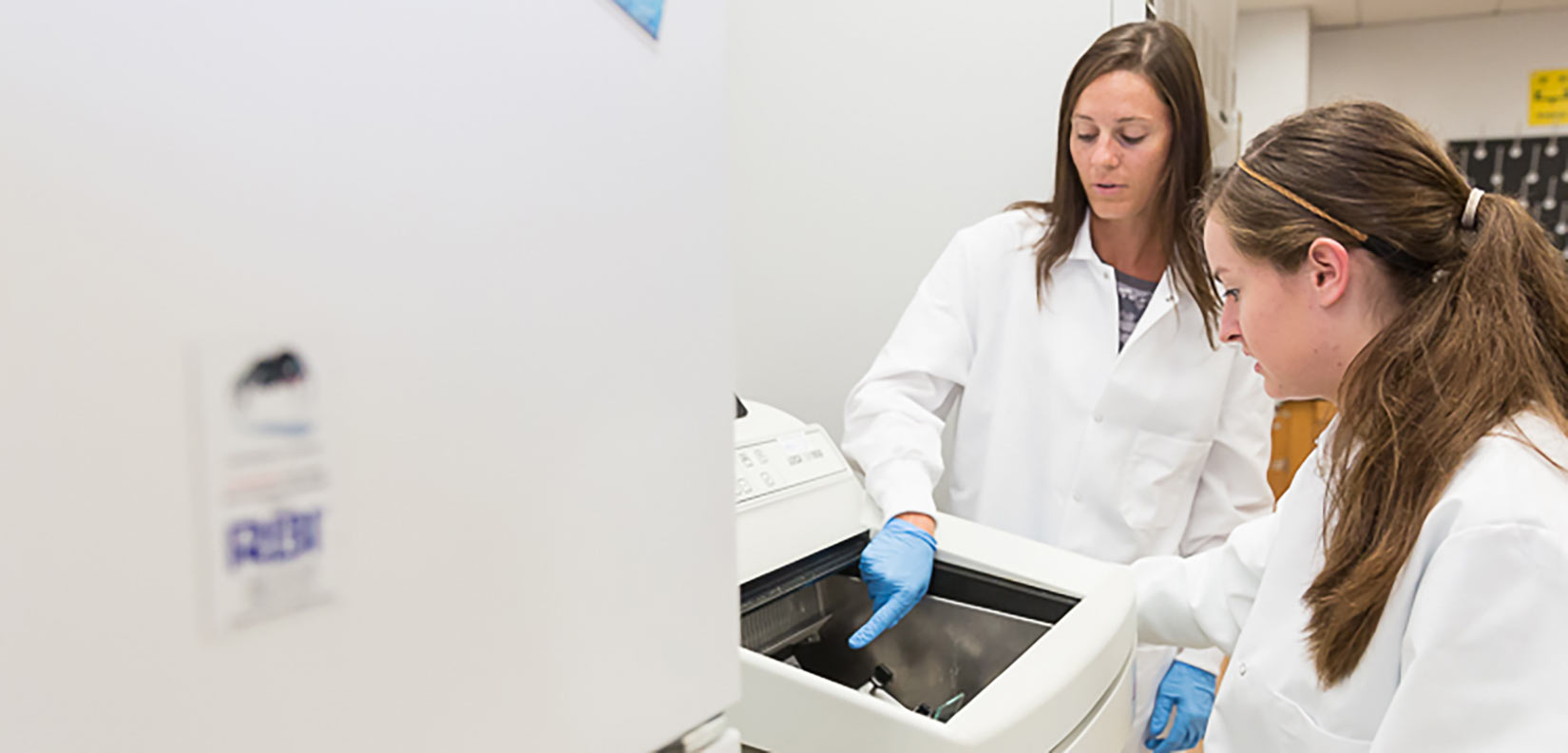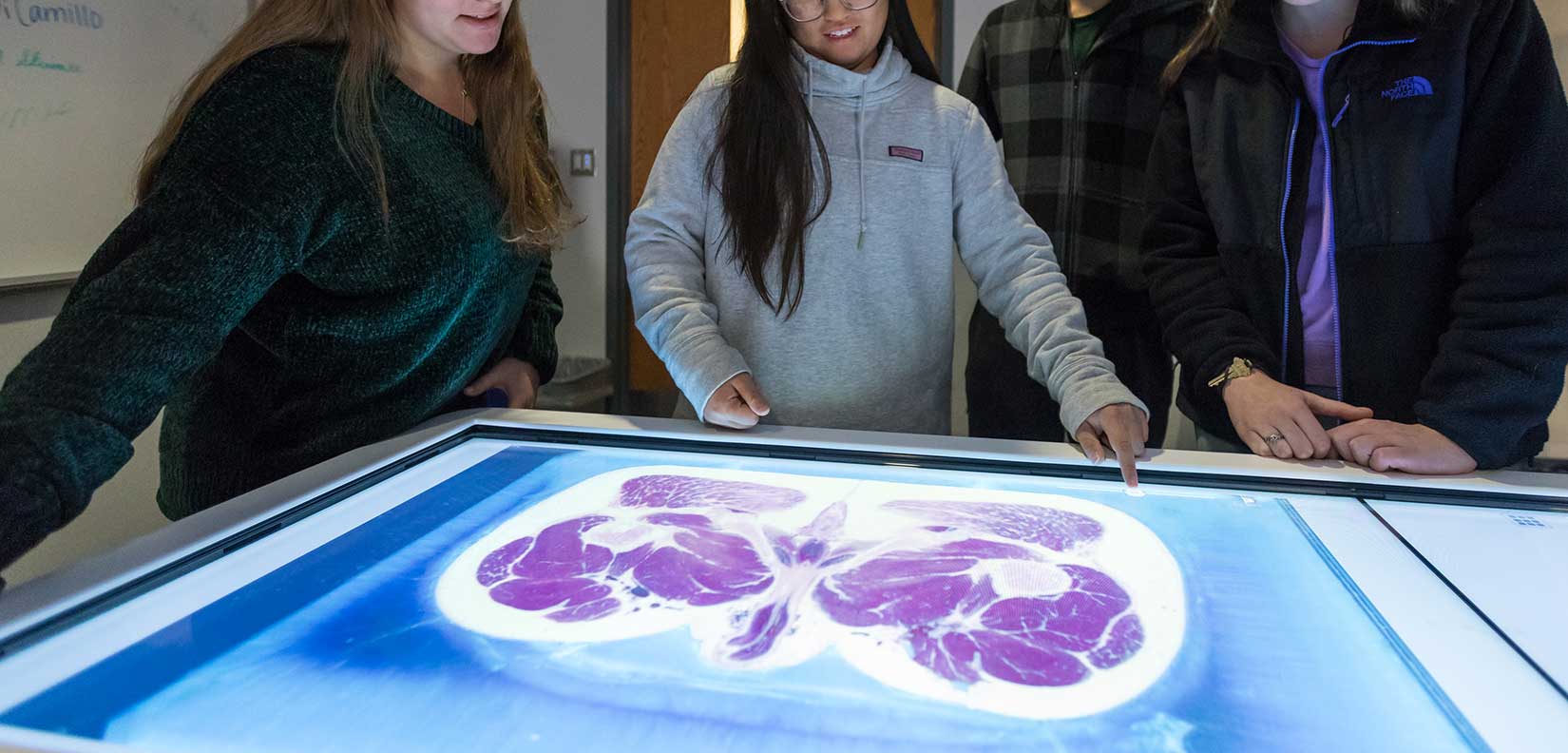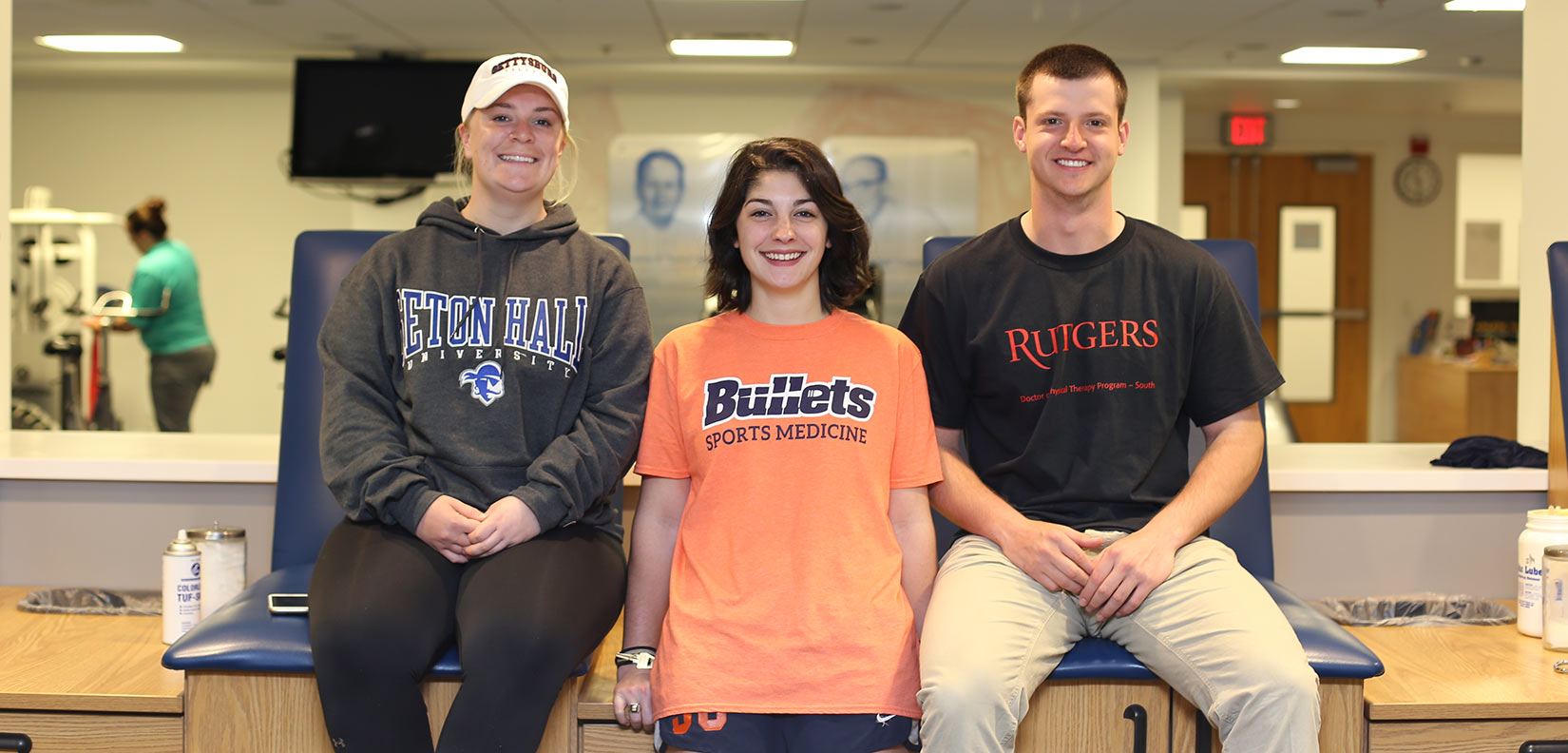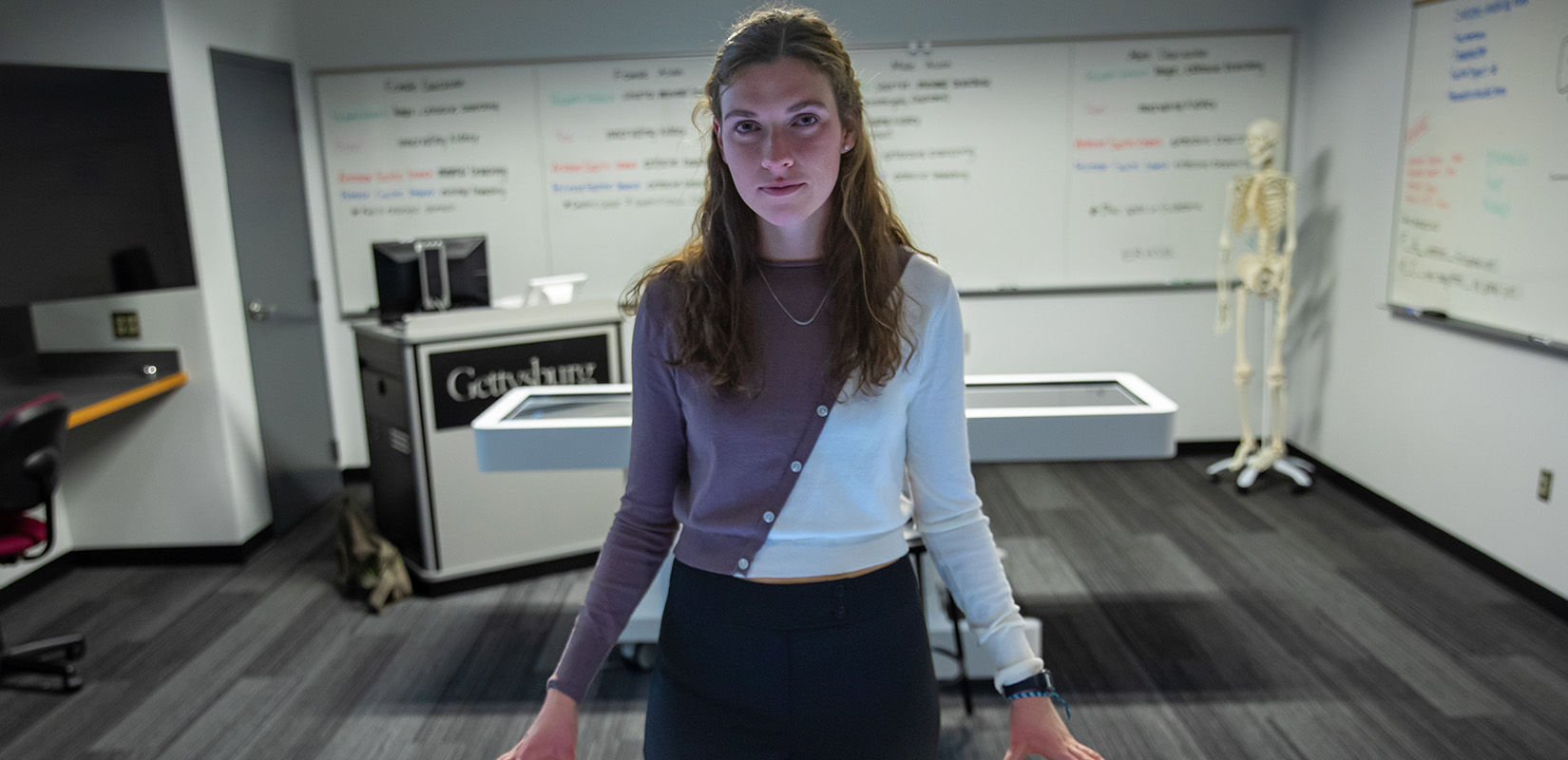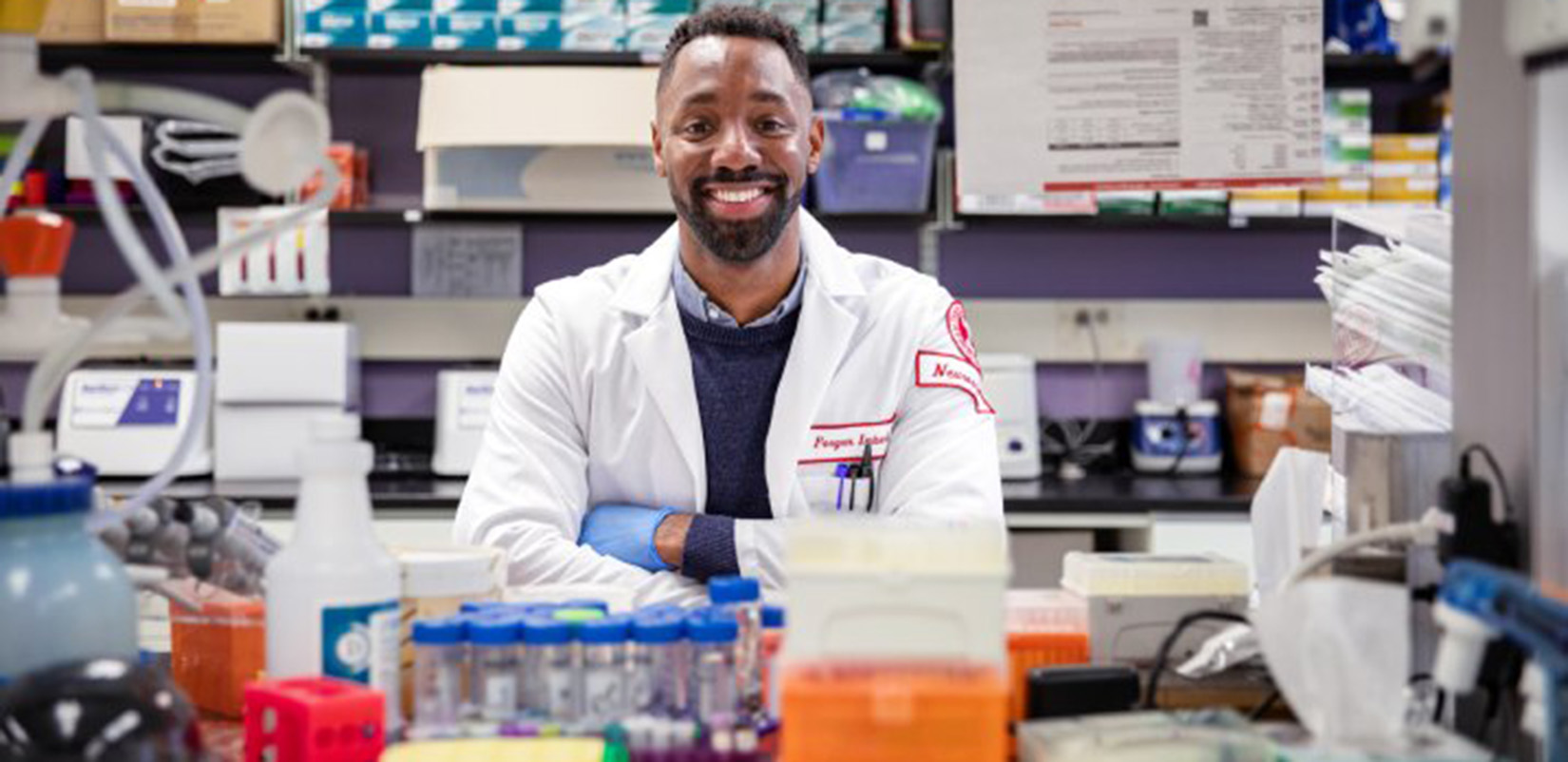The Health Sciences Department at Gettysburg College prepares students with a multidisciplinary approach to learning. Students who pursue the health sciences major may choose between the Bachelor of Science (B.S.) in health sciences or the Bachelor of Arts (B.A.) degree in health sciences.
With Gettysburg College’s signature approach to undergraduate education through the Gettysburg Approach, students receive a breadth and depth of knowledge and enduring skills that prepare them to thrive in a health care landscape marked by change and adaptation. To ensure that health sciences students make the most of their academic studies and co-curricular activities, the Guided Pathways allow them to connect their education with practical, experiential learning to prepare them for their pursuits in health professions.
What is a health sciences degree?
A health sciences degree is highly flexible, with its focus centered on building the enduring skills of adaptability, communication, leadership, problem solving, and teamwork needed to enter the health care industry. Your coursework in the health sciences span subjects such as human anatomy and physiology, nutrition, health equity, and global health.
While the bachelor’s in health sciences doesn’t qualify you to become a clinician, you’ll develop the groundwork needed to pursue graduate study. Earning your health sciences degree qualifies you for various entry-level health professions.
Upon completion of the Health Sciences major, students will be able to demonstrate competency in the following areas:
Information acquisition and comprehension
Acquire and explain information from multiple health sciences topics using appropriate sources.
Quantitative and qualitative analysis
Appraise health sciences research findings using quantitative and qualitative data analysis knowledge and skills.
Written communication
Compose essays, research papers, and other forms of written scientific communication using high-quality health sciences sources.
Verbal and visual communication
Communicate health sciences knowledge through verbal and visual presentations, applicable to various audiences.
Participation and collaboration
Collaborate with peers using skills such as active listening, time management, resource sharing, and teamwork in health sciences laboratory experiences and projects.
Dimensions of human health
Describe physiological, physical, psychological, and social differences as they relate to health outcomes for individuals and communities.
Why should I major in health sciences?
The field of health care is a thriving, diverse field, with jobs available for those who are interested in medical school, physical therapy, physician assistant programs, public health, nursing, health care administration, or health policy. You’ll know that you’re a good fit for the health sciences major if you’re eager to learn about human health and improve the well-being of patients and communities.
The Bachelor of Science (B.S.) in health sciences
The Bachelor of Science in health sciences is ideal for students who want to apply to medical school, physical therapy programs, physician assistant programs, nursing or related graduate study in the health professions. Students develop a solid foundation for their study of the human body and the natural sciences, discovering the conditions that cause disease or promote wellness.
The Bachelor of Arts (B.A.) in health sciences
The Bachelor of Arts in health sciences differs from the Bachelor of Science in health sciences by placing a greater focus on public health. Students who seek to enter careers in public health, global health, epidemiology, health policy, health administration, health education, or other related population health professions can benefit from a Bachelor of Arts in health sciences.
Health sciences curriculum
As a health sciences major, you engage in health sciences coursework, labs, internships, and independent research that can lead to presentations at distinguished scientific meetings. To apply your knowledge and interests in the health sciences, B.A. and B.S. in health sciences majors enroll in a capstone experience course or internship.
Explore all health sciences courses.
What makes Gettysburg’s health sciences department different?
You may find yourself conducting research in one of our cutting-edge health sciences facilities, including the Molecular Physiology Lab, Neuromuscular Physiology Lab, Integrative Physiology Lab, or Human Anatomy and Physiology Lab. On other days, you may find yourself collaborating with the Pre-Health Professions Club. You can also get involved in community-based research working on health research in our local community in collaboration with Health Sciences faculty, the Center for Public Service, and community-based organizations.
The Department of Health Sciences offers a unique experience for each student seeking a health sciences degree, intentionally connecting the liberal arts and sciences with the human sciences. Collectively, the valuable insights gained from integrating a liberal arts education with the health sciences allow students to carry their interdisciplinary perspectives into their graduate studies and careers.
Hands-on learning opportunities
Within the Gettysburg Health Sciences Department, you have the opportunity to engage in invaluable internships within any health profession you would like to explore.
Your hands-on learning opportunities might also include volunteering in health care services within the Gettysburg community, studying abroad, conducting student-faculty research projects, or shadowing a physician.
Student life opportunities
Students who want to learn more about the health professions are encouraged to join the Pre-Health Professions Club, open to all students regardless of major. Club members learn about career paths through guest speakers, conferences, school fairs, volunteer work, field trips, and discussions in regular club meetings.
Additionally, students are welcome to participate in the Emergency Medical Services organization. Its members consist of student EMTs and first responders who educate members and the College community on CPR, Stop the Bleed, and other aspects of medical training.
connectGettysburg
All Gettysburg students and alumni have access to the connectGettysburg platform, our home for more than 32,000 alumni who are eager to grow their professional network. Our connectGettysburg platform links you with Gettysburg professionals inside and outside the field of health sciences to help you grow in your career.
Career preparation
Students can connect with an array of helpful resources through Pre-Health Professions advising. Supported by the Center for Career Engagement, Pre-Health Professions advising can help students in their pursuit of an entry-level career in the health sciences, applying for medical school, or applying for other graduate programs in the health professions.
Through health sciences coursework, labs, internships, externships, and the Pre-Health Professions Club, you’re supported every step of the way. You will have an academic advisor in the Health Sciences department offering individualized guidance for the duration of your degree program, collaborating with you as you prepare for a successful career in the health professions. Along with the Center for Career Engagement, all health sciences majors are offered comprehensive advising through Health Professions advising.
For students seeking to apply to medical or dental school, the Health Professions Committee conducts interviews with students and provides composite evaluations for students who decide they are ready to apply.
Priority consideration for a Master of Science in nursing
Gettysburg’s Health Sciences Department prepares health sciences majors for nursing careers through a partnership with the Johns Hopkins University School of Nursing (JHUSON). Through this partnership, Gettysburg students are given priority consideration in the application process of the Master of Science in nursing (MSN) degree program.
Featured course
Jump to level: All Health Sciences courses
Our distinguished faculty’s publications
-
Article Rhodiola rosea supplementation on sports performance: A systematic review of randomized controlled trials by Prof. Eric E. Noreen
-
Podcast A global health threat Prof. Megan Benka-Coker
-
Article Reduced black carbon concentrations following a three-year stepped-wedge randomized trial of the wood-burning Justa cookstove in rural Honduras Prof. Megan Benka-Coker
-
Article Effects of household and participant characteristics on personal exposure and kitchen concentration of fine particulate matter and black carbon in rural Honduras Prof. Megan Benka-Coker
-
Article Exposure to Household Air Pollution from Biomass Cookstoves and Levels of Fractional Exhaled Nitric Oxide (FeNO) among Honduran Women by Prof. Megan L. Benka–Coker
-
Article Effects of supplemental fish oil on resting metabolic rate, body composition and salivary cortisol in healthy adults Profs. Eric Noreen and Josef Brandauer
Support communities with your health sciences degree at Gettysburg
Making the decision to earn your bachelor’s in health sciences at Gettysburg connects you to a myriad of academic opportunities beginning on your first day of class. Whether you want to earn your B.A. or B.S. in health science, you’ll feel involved through each lab, class, and internship. Throughout your undergraduate education at Gettysburg, dedicated health sciences and health professions advising is always available to assist you. Experience the support of a community of faculty and students who are invested in your success.
Request more information about the health sciences programs at Gettysburg College.
Health Sciences Department Spotlight
Prof. Megan (Graham) Benka-Coker ’09
Benka Coker’s ’09 research focuses on the impact of household air pollution on health.
When Megan Benka-Coker ’09 graduated from Gettysburg College, she would have never predicted that in fewer than ten years she would be back as a professor. “I always thought I would pursue more of a research path,” Benka-Coker said. Yet, when she stumbled across an opening in the health sciences department, she realized it would be the perfect fit.
Benka-Coker is teaching a global health course this spring, a topic she hopes will attract students in all disciplines, not just health sciences. Her current research focuses on exposure to household air pollution and its impact on health. In countries where electricity is not readily available, households often prepare meals and heat their homes over open fires or small stoves. Cooking with firewood inside the home results in high levels of pollution, both particles and gases, that can be dangerous for the health of the family members—mainly women who are cooking, and children who are watched by their mothers.
Benka-Coker hopes to partner with a local Gettysburg organization, Project Gaia, and conduct exposure and health studies on ethanol burning cookstoves in Eastern Africa, Nigeria, and possibly India. “As an environmental epidemiologist I think there is much work needed to be done in improving our exposure assessment and improving our measurements,” she said.
As a professor, her work is coming full circle. “It was really all the experiences at Gettysburg College that brought me to global and public health,” Benka-Coker said.

